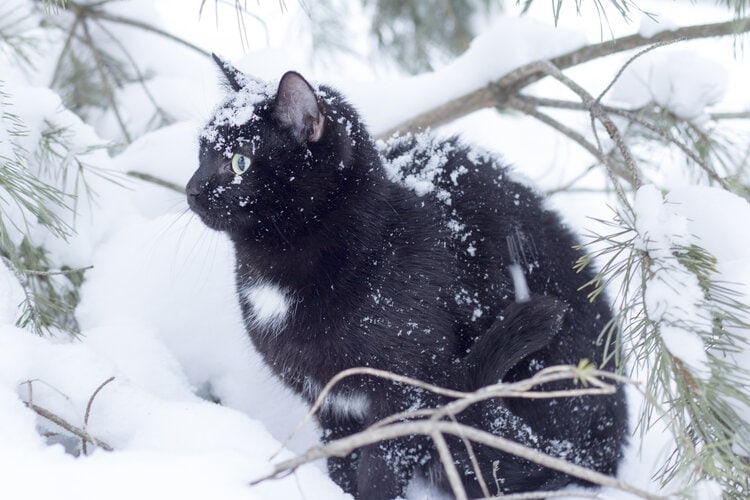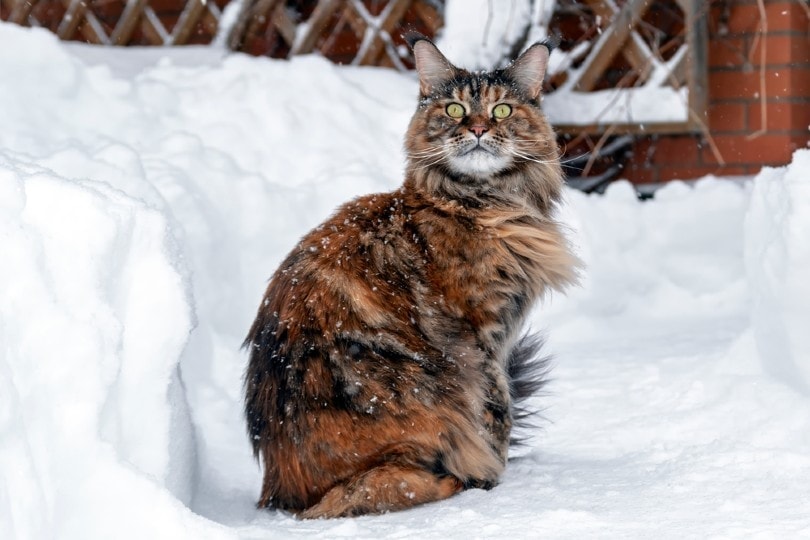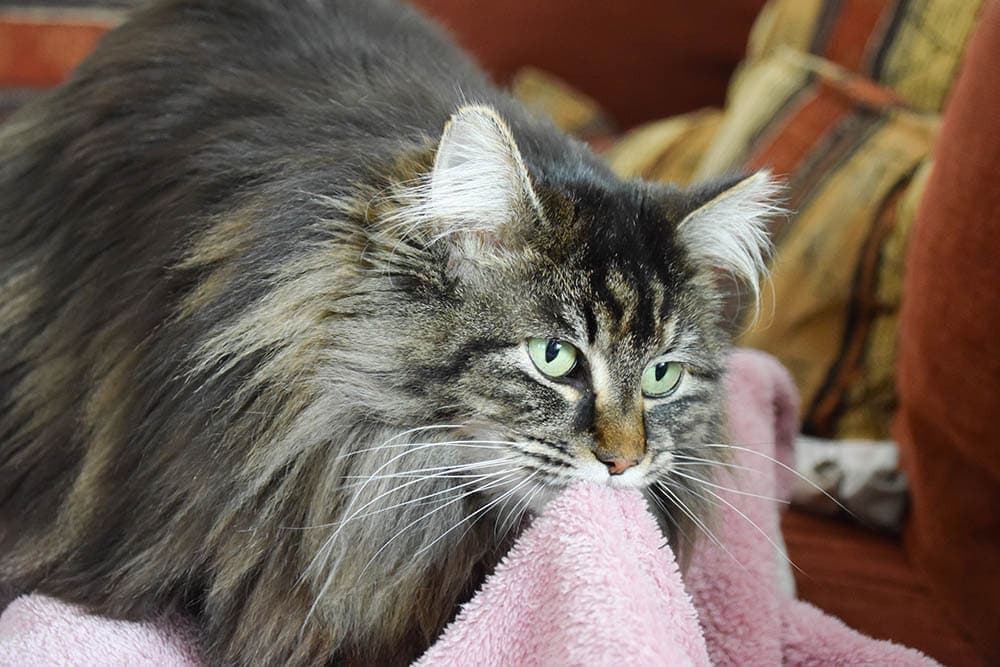Does a Cat Gain Weight in the Winter? Vet-Reviewed Metabolism Facts & FAQ
By Lorre Luther
Updated on

If you’ve lived with a cat for more than a few years, you might have noticed your feline putting on weight in the winter and losing the extra weight when the weather warms up. While some of that might be attributable to the amount you’re feeding your pet, you might also wonder if cats tend to gain weight during cold winter.
It’s normal for domestic cats to put some weight or even a few pounds on when the weather is cold outside. However, the trend is most likely due to a change in their routine, more so than any biological tendency to gain weight when the temperatures drop.
So Why Does My Cat Gain Weight During the Winter?
Cats, just like humans, usually gain weight during the winter because of two tendencies: a desire to eat more to help with energy production and a decrease in movement. Domestic cats will increase their food consumption to get more calories to support temperature regulation in a cold environment.
If your cat feels uncomfortably cold in your home, they’ll most likely seek warm places to hang out and increase their food intake. Eating a few more treats and sitting by the radiator are the feline equivalents of drinking hot cocoa in front of a cozy fire.
Cats used to going outside during temperate weather are often dismayed when temperatures drop and will only hit the fresh air for limited, short periods, which ultimately reduces the amount of exercise they get.

Does My Cat’s Metabolism Decrease During the Winter?
Generally speaking, yes. Most mammals have a slight metabolic dip during the winter months that leads to sluggishness. In reality, the increase in food and decrease in activity levels leads to weight gain during the colder months.
Is There Anything I Can Do To Limit My Cat’s Weight Gain?
Absolutely! Your cat needs to eat healthy meals and get sufficient exercise. High-quality cat foods usually come with feeding instructions on the bag, and most have information about how to tweak the amount you give your pet if they need to gain weight or drop a few pounds. Measuring your cat’s food and limiting the number of treats is the most effective way to keep their weight under control during the fall and winter.
Ensuring your pet gets enough physical activity will go a long way to keeping them healthy and trim. Each cat is different, but most healthy adult cats need at least two to four 15-minute play sessions daily to get the proper mental and physical stimulation.
We would also like to hand you a tool to know how much you should feed your cat to maintain their health:
The exact amount of calories an individual animal needs to maintain a healthy weight is variable and influenced by many factors including genetics, age, breed, and activity level. This tool is meant to be used only as a guideline for healthy individuals and does not substitute veterinary advice
Are There Other Ways To Keep My Cat Comfortable During the Winter?
Extra blankets are a great option for your cat to snuggle and stay warm when you’re gone. If you have a radiator, consider putting a cat bed close by so your cat can access a warm place when you’re not home. As long as your cat has play and exercise sessions every day and maintains a healthy diet, they’re unlikely to gain an excessive amount of weight.
Featured Photo Credit: hitryuga, Shutterstock













